Lactose Intolerance and Protein Powder: All You Need To Know
Author:
Unlock your full potential by engaging with our experts and community! Have questions about your fitness journey or looking for expert advice on weightlifting techniques? Don’t hesitate — leave a comment below and Jacek Szymanowski will provide a personalized answer and insights to help you reach your goals.
Torokhtiy is reader-supported. Some links are affiliate links, and we may earn a commission at no extra cost to you. See our disclosure page for details.
Finding the right protein powder can be difficult, but when you add being lactose-intolerant to it, it becomes a chore. A lot of popular protein powders, like whey, are derived from milk and can cause digestive issues for people who can’t properly digest lactose.
Don’t worry, though – there are a lot of options out there that contain no milk or its derivatives and that won’t cause problems for people who are intolerant to lactose.
In this guide, we’ll help you navigate the world of these specific kinds of protein powders. You’ll learn what to pay attention to, what types of lactose-free protein powders there are, and you’ll also find out what you can expect from taking them.
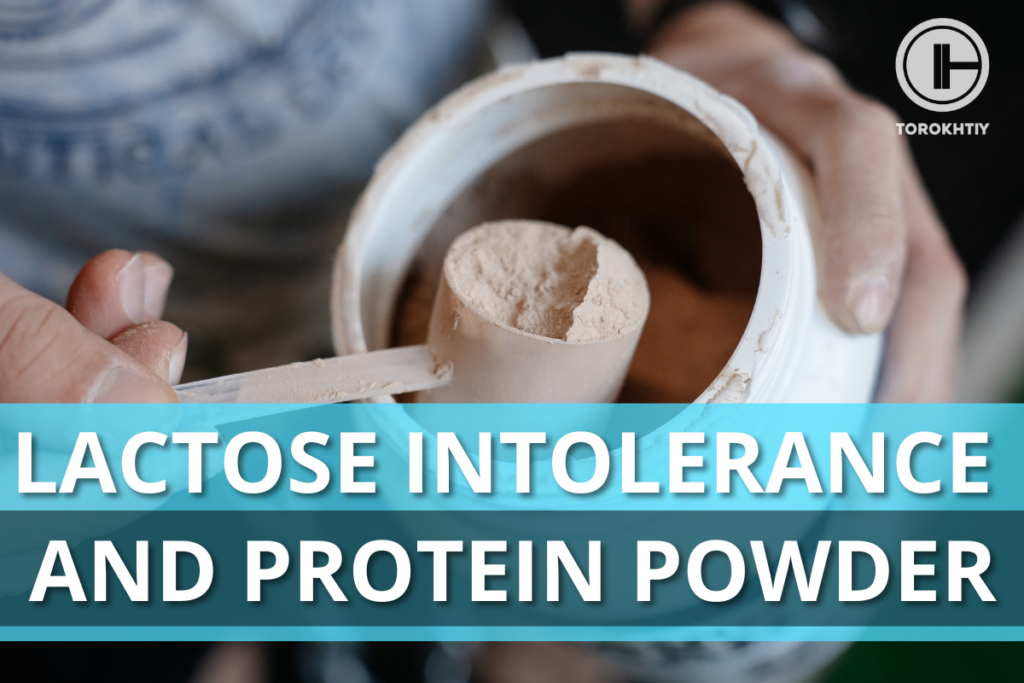
What Is Lactose Intolerance?
Lactose intolerance is a condition where people have digestive symptoms after consuming products containing lactose like most dairy products. Symptoms of lactose intolerance include bloating, diarrhea, and gas.
Lactose intolerance is caused by something called lactose malabsorption, which is when the small intestine cannot adequately digest lactose, leading to the symptoms listed above.
It is estimated that 68% of the world’s population and 36% of the United States’ population suffer from lactose malabsorption. It’s worth noting that not everybody with lactose malabsorption will experience the symptoms associated with lactose intolerance.
Keep in mind that if you don’t have lactose intolerance, there’s no real reason to avoid lactose in your diet!

How Do You Know if You Need a Lactose-Free Protein Powder?
If you’re lactose intolerant, we recommend switching to a lactose-free protein powder. If you’re unsure of whether or not you are lactose intolerant, we recommend getting checked out by a healthcare provider so they can give you a proper diagnosis.
This process usually involves a lactose tolerance test which will involve consuming lactose to see whether or not your body is able to digest it.
Even if you get checked out and you don’t have lactose intolerance, your current protein may still upset your stomach. In this case, it may be worth giving lactose-free protein shakes a try instead! Whey concentrates will typically be the protein powders that contain the most lactose.
If you’re currently using a whey concentrate and experiencing digestive symptoms, there’s no harm in switching to a lactose-free alternative.
What Types of Protein Powder Can Be Lactose-Free?
On our list, we covered 4 different types of lactose-free protein, which we’ll be breaking down in more detail here. It’s worth mentioning these aren’t all the lactose-free protein types available, for example there’s beef protein, as well as a wide variety of other plant-based options we didn’t cover!
1. Plant-Based
The vast majority of our list is made up of plant-based protein powders. These are usually made up of pea protein, brown rice protein, seed protein, or a blend of different plant-based proteins.
Especially in the context of this list, plant-based proteins are very competitive with lactose-free whey in terms of macro breakdown, cost, and even flavor. Whether you’re lactose intolerant, vegan, or just want to switch it up from whey, plant-based protein blends are a great option!
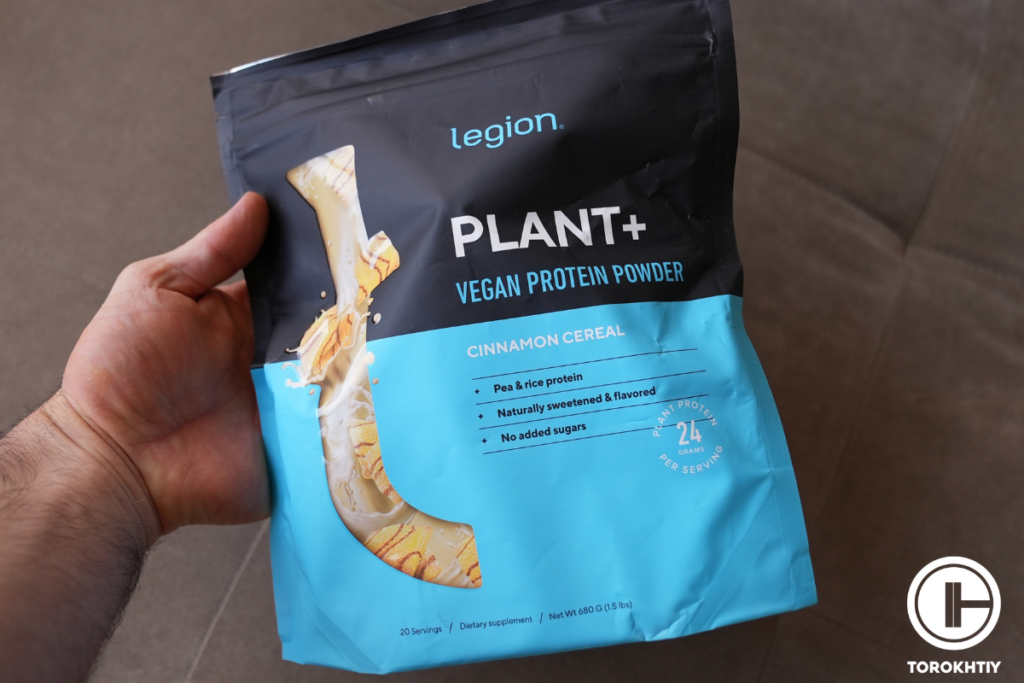
2. Whey Isolates
As we mentioned on our list, finding largely lactose-free whey protein shouldn’t be too difficult, as long as you are buying isolates instead of concentrates. Whey concentrates have a protein concentration up to 80%, while isolates are 80% or higher.
The difference in filtration process makes concentrates have higher lactose content than isolates. Isolates are often made up of 1% or less lactose, making them largely ok for lactose intolerant individuals. Keep in mind if you’re very lactose sensitive, they will still contain trace amounts.
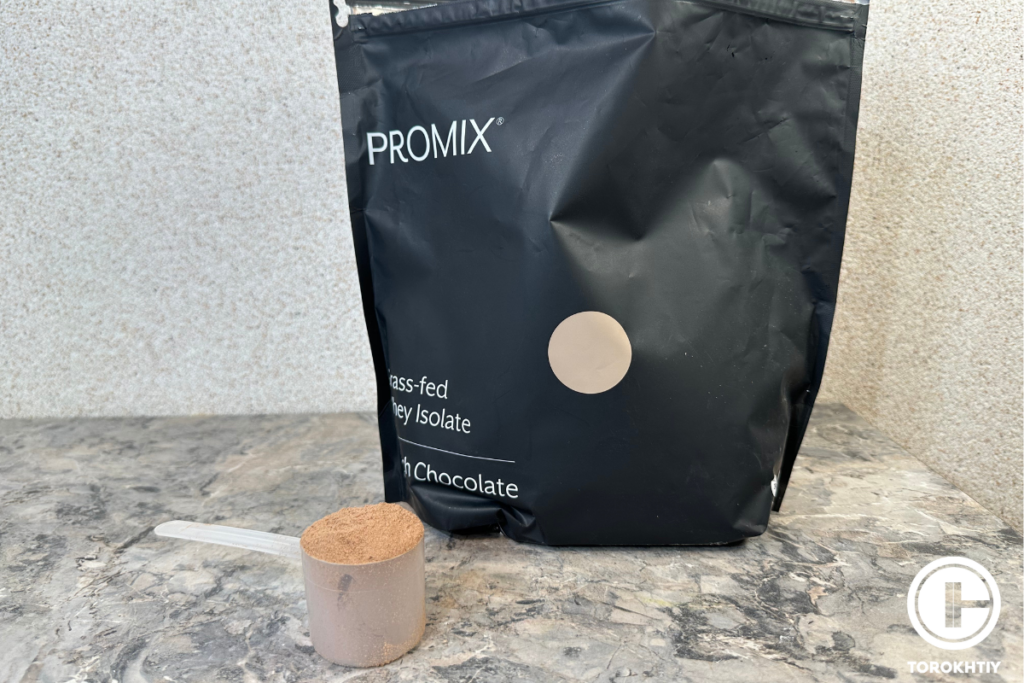
3. Collagen
Another popular dairy alternative is collagen protein. This protein type is typically sourced from animal ligaments, and has become increasingly popular for its health benefits.
Aside from its potential effects on your skin, hair, and joints (a topic that still needs more research), collagen is not a bad supplement for having a very high protein-by-weight ratio of around 90%.
One downside is that because of how it’s sourced it is not suitable for vegetarians. While it can also be expensive, our choice, Myprotein’s Collagen falls right around the average price for our list.
4. Egg-White
Finally, the last lactose-free protein type we covered on our list is egg-white protein. Often overlooked as a powdered protein, egg white protein is great especially for its versatility as an egg white substitute while baking.
Just keep in mind that out of all the proteins we’ve covered, this might be the least enjoyable to drink, especially if you’re used to whey shakes.
How to Pick the Best Lactose-Free Protein Powder?
There are a few factors you’ll want to consider when deciding on which lactose-free protein powder to buy. We’ve broken them down for you here so you can make a more informed decision.
1. Protein-By-Weight Ratio
Protein-by-weight ratio can be helpful while choosing whey proteins when you’re looking for a lactose-free product. As we’ve mentioned, the lower a whey protein’s concentration is, the more lactose it will likely contain.
So if you’re lactose intolerant and looking to buy a whey powder, we strongly recommend sticking with whey isolates. Although these are typically a bit more expensive than concentrates, with higher protein-by-weight, you’ll be much more likely to get a nearly lactose-free shake.
2. Value For Money
Another major factor to consider when shopping for a lactose-free protein powder is the value you’re getting for your money. There’s no reason to spend significantly more on a lactose-free protein powder than a regular one.
While whey isolates do cost more than concentrates they often contain more protein, but if you’re trying to save some money, you might consider a plant-based alternative like Naked’s Pea Protein, which is less than a dollar per serving!
While whey isolates are high quality products, and are worth a bit more than concentrates, be sure you’re not breaking the bank just to get a lactose-free protein powder.
Also, always check the serving size and compare it to protein content to see what the protein-by-weight ratio is to make sure you’re not paying for any added fillers.
3. Flavor and Mixability
Of course, you should always consider the taste and texture of a protein before making a purchase. With many of the proteins coming in unflavored varieties, you should decide if flavoring is something you’re willing to sacrifice to get better macros or save a bit of money.
There’s nothing wrong with prioritizing flavor when making a decision – you’re the one that’s going to be drinking it after all!
Transparent Labs Rice & Pea Organic Vegan Protein
- Diet Type: Building Muscle, Improving Recovery
- Suitable for Vegans: Yes
- Protein Source: Organic Rice and Pea Protein
- Package Type: Plastic Tub
- Item Weight: 2.12lbs
- Serving Size: 32-37g
- Price per Serving: ~$1.67 (Slightly cheaper with subscription)
- Protein-by-Weight Ratio: 65-75%
- Calories: 130-150
- Protein: 24g
- Carbohydrates: 3-7g
- Fat: 2-2.5g
- Sugar: 2g
- Company Founded: 2015
- Recommended by Athletes: Hafthor Bjornsson, Paul Sklar, Sean Harris
As far as vegan proteins go, they don’t get much higher quality than Transparent Labs. Made of completely organic ingredients, with no unnecessary filler, Transparent Labs prioritizes the quality of their proteins above all else. While the flavor will differ from whey protein, this is one of the smoothest and best tasting vegan proteins out there, coming in both vanilla and chocolate flavors.
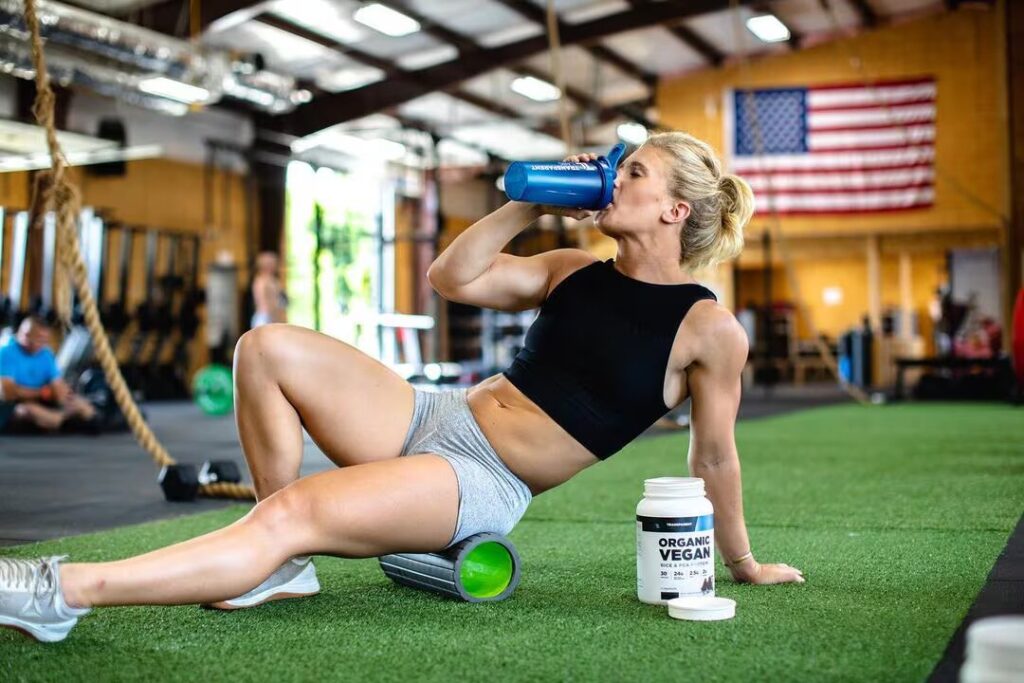
Although the macros are solid at 24g of protein per serving, keep in mind this might not be the best option for cutting (especially if you want to limit calories that you are drinking) with a fairly high calorie and carb count in each serving compared to WPI. Also, at ~$1.67 per serving, it falls right around the average price point.
Is Whey Protein Okay for Lactose Intolerance?
The answer to this largely depends on how the whey is being processed. There are two different types of whey protein commonly available: concentrates and isolates. Concentrates will typically have less than 80% protein concentration, with isolates often having more than 80% percent.
As you can imagine, this difference is often made up with some extra lactose. By opting for a concentrate, you are much more likely to have a higher-lactose content, likely leading to symptoms related to lactose intolerance if you have one.
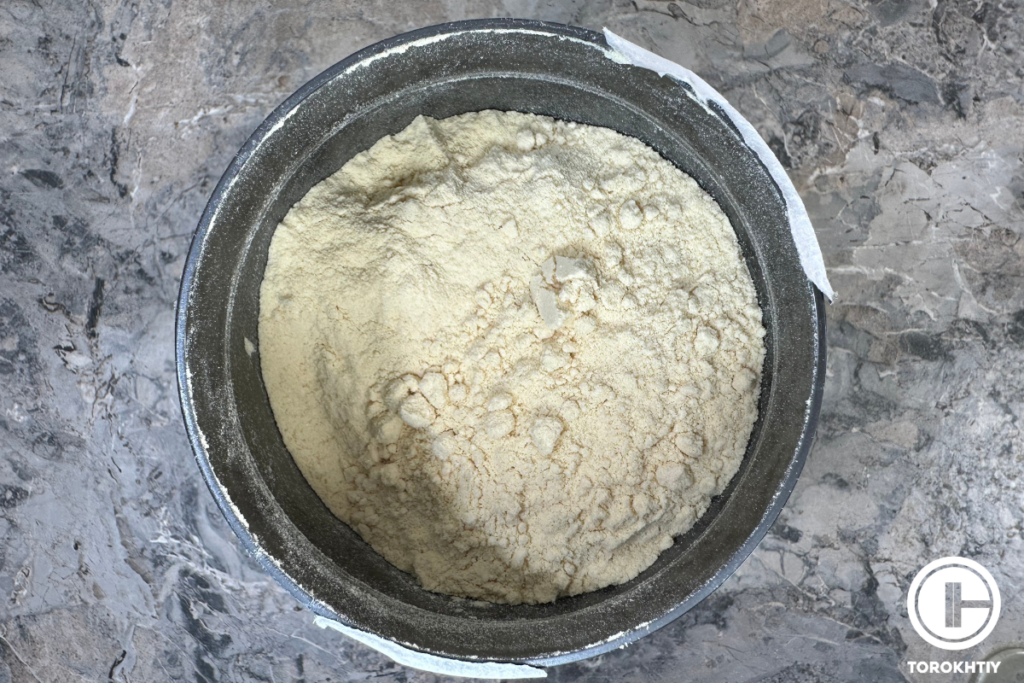
Can I Build Muscle With Non-dairy Protein?
Absolutely, there’s no reason to think that you need a dairy-based protein powder in order to put on muscle. Most people vastly underestimate how much protein they need.
The recommended range for muscle growth is a wide range, around 0.65-1.3 grams of protein per pound of bodyweight daily. With many of the non-dairy proteins on our list having upwards of 20g of protein per serving, combining these with other high protein foods will help you meet your daily protein needs.
The other main things that need to be done if you want to gain muscle are training hard enough to promote hypertrophy, and how many calories you’re eating overall depending on your goals.
Make sure you’re either eating in a small caloric surplus if you’re trying to bulk, or a small caloric deficit if you’re trying to cut. Overall, it’s possible to build high-quality muscle with no dairy in your diet.
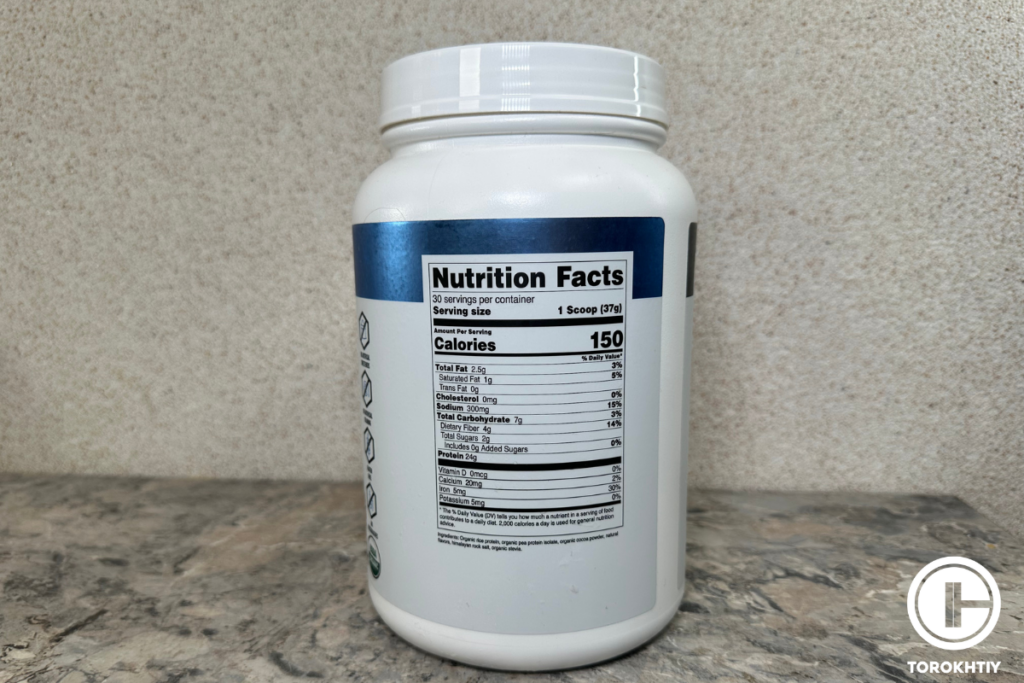
FAQ
Is Lactose-Free Protein Powder Better?
Not necessarily. Obviously, if you’re lactose intolerant, you’ll definitely want to avoid any protein with a lactose content. It’s worth noting that lactose-free whey protein will typically have a higher protein concentration.
However, aside from this, if you have no digestive issues when it comes to lactose, there’s no real reason to opt for a protein without lactose instead.
Can Whey Protein Powder Be Lactose-Free?
Somewhat. Although whey isolates have significantly less lactose than concentrates, they will still contain some amount of it – usually around 1%. Although whey will rarely be completely lactose-free, there likely won’t be enough lactose in whey isolates to cause issues for lactose intolerant people.
Although whey protein can be almost lactose-free, it’s still made from milk products, so keep in mind that you will never find a dairy-free whey protein powder.
Is Non-Dairy Protein Powder Good For You?
Yes. Non-dairy protein powders are often just as nutritious and high-quality as their dairy counterparts. If you want to avoid dairy for any reason – whether you’re lactose intolerant, or just follow a plant-based diet – non-dairy protein powders are a great way to supplement extra protein in your diet.
Just keep in mind that many plant proteins do not have a complete amino acid profile!
Conclusion
Trying to find a lactose-free protein powder can be hard if you don’t have the right information. Luckily, that’s not the case for you! You know all there is to know about these kinds fo protein powders and you can safely choose one that won’t disturb your stomach.
If, however, you don’t feel like searching the Internet and browsing through products, try the Transparent Labs Rice & Pea Organic Vegan Protein.
We’d love to hear anything you have to say on this subject! Have you tried lactose-free protein powders before? Do you have one to recommend? Have you stumbled upon any issues?
We can’t wait to talk to you some more!
Also read:
- Best Heavy Metal Free Protein Powder
- What Is Grass Fed Whey Protein
- Best Egg Protein Powder
- Whey Isolate Protein Guide
- Whey vs Plant Protein
- Egg White Protein Powder Benefits
References:
- Dairy Ingredients // CDR: https://www.cdr.wisc.edu/dairy-ingredients-faqs
- The Nutrition Source // Harvard: https://www.hsph.harvard.edu /nutritionsource/collagen/
- Definition & Facts for Lactose Intolerance // NIH: https://www.niddk.nih.gov /health-information/digestive-diseases/lactose-intolerance/definition-facts
- Lactose Intolerance // UCSD: https://myhealth.ucsd.edu/ Wellness/Stress/ NewsRecent/85,P00388
- The Rundown on Protein Powders // GSU: https://recreation.gsu.edu/ 2023/03/31/the-rundown-on-protein-powders/
- International Society of Sports Nutrition Position Stand: protein and exercise // NIH: https://pubmed.ncbi.nlm.nih.gov /28642676/
- Photos made by Torokhtiy Media Team; photo by stefanamer, Canva.
Why Trust Us?
With over 20 years in Olympic weightlifting, strength training, nutrition coaching, and general fitness our team does its best to provide the audience with ultimate support and meet the needs and requirements of advanced athletes and professional lifters, as well as people who strive to open new opportunities and develop their physical capabilities with us.
By trusting the recommendations of our certified experts in coaching, nutrition, and sports training programming, as well as scientific consultants, and physiotherapists, we provide you with thorough, well-considered, and scientifically proven content. All the information given in the articles concerning workout programming, separate exercises, and athletic performance, in general, is based on verified data.
The product testing process is described in more detail here.
Author: Jacek Szymanowski
Certified Nutritionist,
M.Sc.Eng. Biotechnology
Performance Architect,
Strength and Conditioning Specialist
With over 30 years of fighting experience, specialization in nutrition coaching for athletes, and expertise in metabolic health and dietary strategies, Jacek offers a comprehensive approach to optimizing your performance and well-being. Backed by a Master of Science degree in Biotechnology, Jacek remains at the forefront of scientific advancements, ensuring that his coaching is always evidence-based and up-to-date.



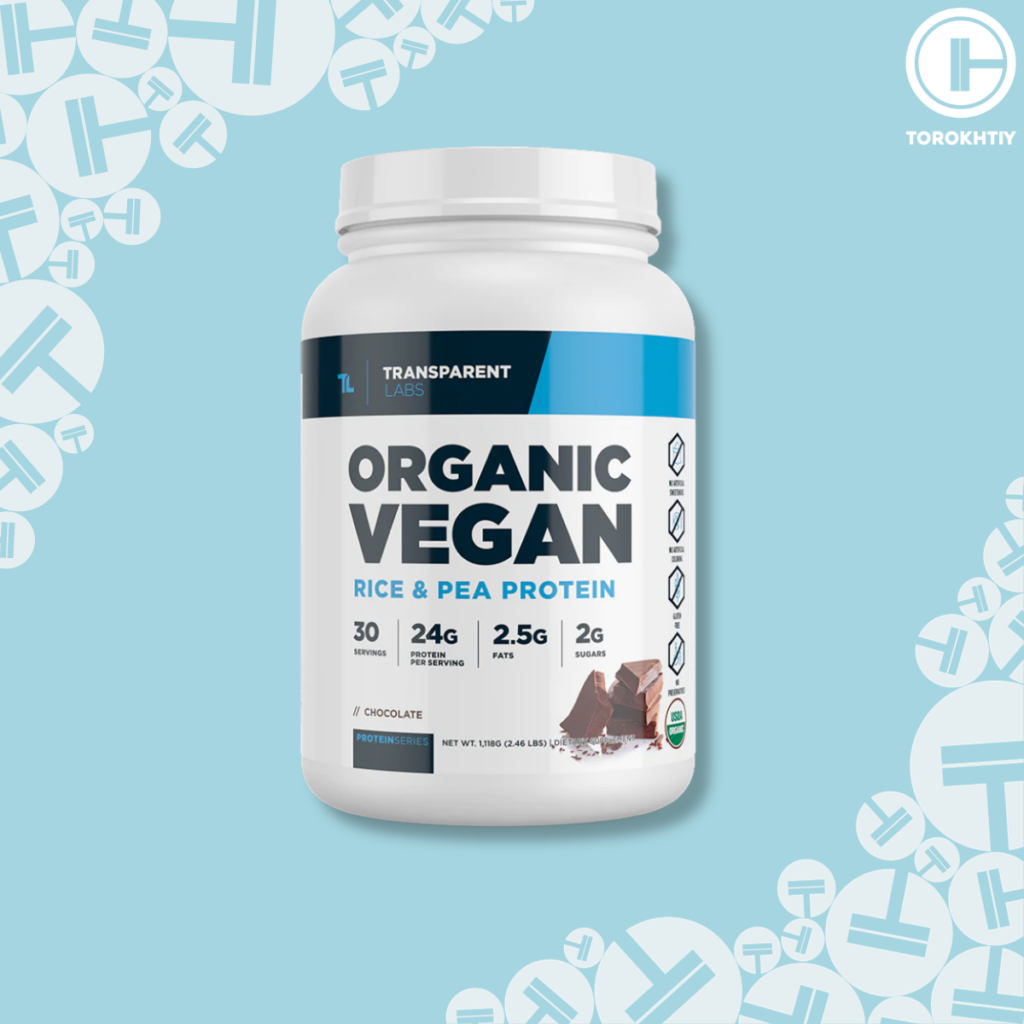
Still have questions after reading our article? Unlock your full potential by engaging with our experts and community! Don’t hesitate — leave a comment below and Jacek Szymanowski will provide a personalized answer and insights to help you reach your goals.